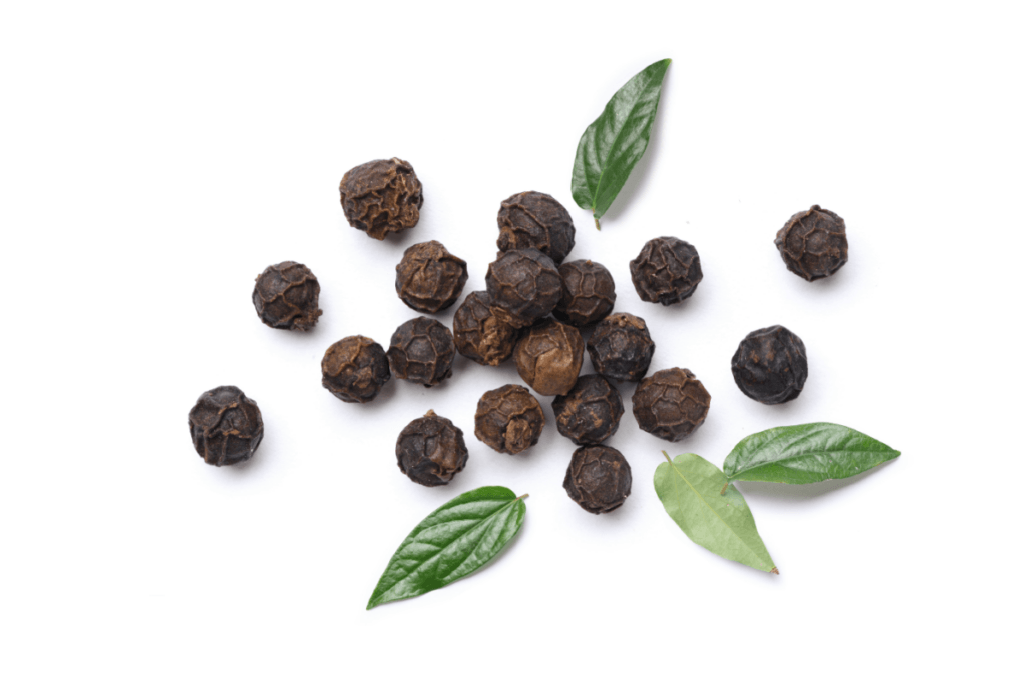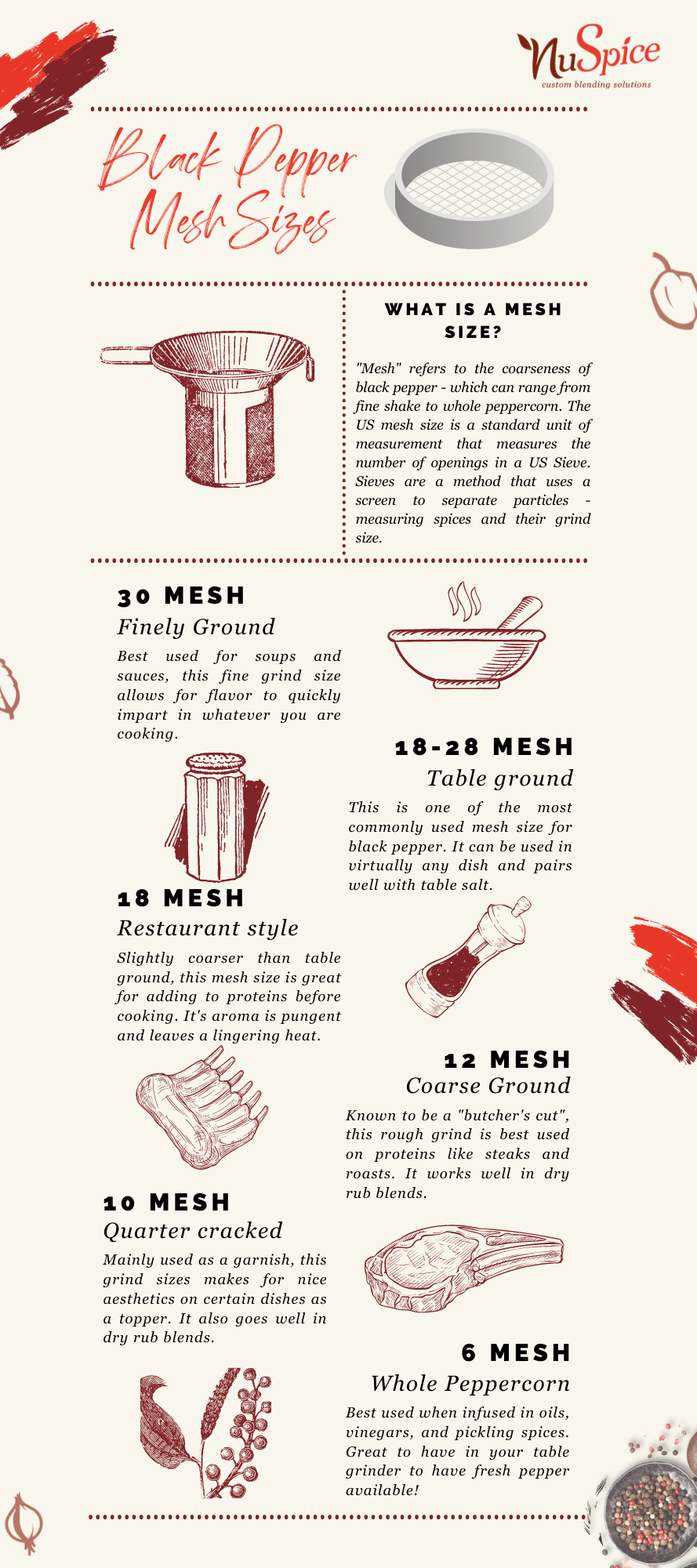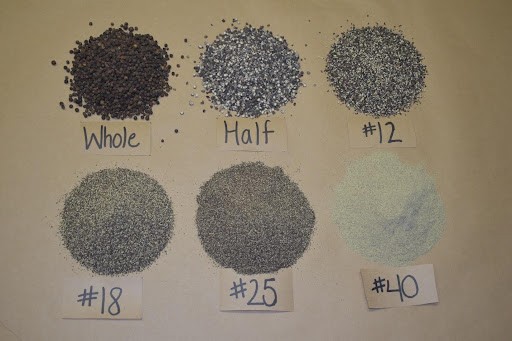
Ground black pepper is one of the most commonly used spices in cuisine around the world. It’s one of the two widely used spices worldwide, but the average consumer doesn’t think about the spice found in its original state — a black peppercorn. As more global influences are introduced and different varieties of peppercorns are introduced to the marketplace, your customers all begin to ask — are peppercorns good for you?
While the masses may not be as familiar with the different options available, quick service restaurants, fast casual dining, meal kits, and meat manufacturers can begin incorporating these spices into their offerings. However, knowing the differences between them can help you make a more informed decision about which ones to incorporate into your menu and products. While there are thousands of black peppercorn varietals available, the ones referencing here are from the Piperaceae Family, which grows on a flowering vine, cultivated for their fruit. You heard that right, the peppercorn is technically a berry most commonly harvested in Vietnam, Indonesia and India, but also in various other countries in Southeast Asia.
What Kinds of Peppercorns Are Available?
Exploring the vibrant world of peppercorns reveals a spectrum of flavors and culinary applications that can enhance any dish. Peppercorns, beyond the well-known black variety, come in several distinct types, each offering unique characteristics and health benefits:
- Black Peppercorns: The most common type, known for their strong, pungent flavor and high piperine content, which enhances digestion and metabolism.
- White Peppercorns: These are peppercorns with the outer husk removed, offering a milder flavor suitable for light-colored dishes to maintain aesthetic appeal without sacrificing zest. They’re picked at the same time as black peppercorns.
- Green Peppercorns: Less mature than black peppercorns, these are harvested earlier and have a fresher, milder flavor, ideal for sauces and Asian cuisine.
- Pink Peppercorns: Often found dried or in brine, pink peppercorns are fully ripened, rare, and provide a fruity, slightly sweet flavor, making them perfect for exotic dishes and creative culinary endeavors.
Each variety adds distinct flavors to dishes and contributes valuable antioxidants and nutritional benefits, making them a versatile and essential component in diverse culinary traditions.
But What About Pink Peppercorns?
Pink peppercorns stand out in the peppercorn family for their vibrant color, distinct characteristics, and culinary uses, making them quite different from their more-traditional counterparts. Here’s how pink peppercorns differ:
- Flavor Profile: Pink peppercorns offer a sweet, mild flavor with a hint of fruity spiciness, making them less pungent than black peppercorns but more aromatic, perfect for delicate dishes.
- Culinary Uses: Ideal for infusing color and a gourmet touch, pink peppercorns are excellent in seafood dishes, desserts, and even as a garnish on salads and cocktails for an aesthetic and flavorful boost.
- Health Benefits: While they share the antioxidant properties typical of peppercorns, pink peppercorns are also noted for their anti-inflammatory benefits, although they should be used cautiously by those with tree nut allergies due to potential similar allergenic properties.
Their unique blend of mild heat and sweet undertones makes pink peppercorns a favorite among chefs looking to add a touch of elegance and exotic flavor to their creations.
Antioxidants in Peppercorns
The antioxidants in peppercorns play a pivotal role in promoting health and preventing disease. These compounds combat free radicals, which are unstable molecules that can damage cells and lead to chronic diseases, including cancer and heart disease. Black peppercorns, for instance, are rich in a variety of antioxidant compounds such as terpenes, tannins, and flavonoids, which collectively contribute to their health-boosting properties.
Regular consumption of foods rich in antioxidants like peppercorns can help reduce inflammation and prevent the accumulation of oxidative stress in the body. This makes them a valuable ingredient for any health-focused menu, offering a straightforward way to enhance the nutritional profile of dishes without altering their flavor profiles significantly.
How to Incorporate Different Kinds of Peppercorns Into Your Menus
Incorporating various types of peppercorns into your menu and product offerings can significantly enhance your dishes’ flavor profiles and health appeal. Here are some creative ways to use different kinds of peppercorns:
- Black Peppercorns: The classic choice for everyday cooking, black peppercorns can be ground fresh onto dishes from steaks to pastas for a deep flavor. They’re also excellent in marinades to deepen the taste profiles of meats.
- White Peppercorns: With a slightly milder flavor, white peppercorns are perfect for incorporating into light sauces, soups, and mashed potatoes, where you might not want the black specks of pepper to be visible.
- Green Peppercorns: Their fresh, mild bite is ideal for seafood and poultry dishes. Green peppercorns in brine can be mashed into a paste, mixed into dressings, or used as a base for a tangy sauce.
- Pink Peppercorns: Because of their sweet, light flavor, pink peppercorns work well in fruit-based dishes or desserts, as well as sprinkled over salads for an unexpected flavor twist and a pop of color.
By thoughtfully selecting the type of peppercorn, you can elevate the sensory qualities of your dishes, appealing to both the palate and the eyes, while maximizing the health benefits of peppercorns.
Why are there so many peppercorn sizes?
Different peppercorns have different uses ranging from whole to finely ground. They are categorized by what’s called a ‘mesh size’, which is the number of openings in a screen per linear inch, measured from the center of one wire. For example, a 12 mesh screen has 12 openings per inch, while a 120 mesh screen has 120 openings per inch. The size of the openings determines what can pass through the screen, and is inversely related to particle size: a larger mesh number means smaller openings, which allow only small particles to pass through, while a smaller mesh number means larger openings, which allow larger particles to pass through.
Here is an example of how different mesh sizes are used in both culinary and food processing.

Learn More About How Peppercorns Can Elevate Your Offerings
NuSpice understands that adding peppercorns can transform a simple dish into a culinary delight with added health benefits. As a business-to-business custom seasoning blend company, NuSpice is committed to providing high-quality peppercorn blends that can enhance any menu item. By incorporating peppercorns into your offerings, you satisfy your customers’ taste buds and contribute to their health, making your dishes stand out in a competitive market.

Examples of Black Pepper Mesh Sizes
Embracing the versatility of peppercorns ensures that your food products remain appealing to a broad audience. Whether introducing a peppercorn blend to season meats or crafting a unique sauce for meal kits, peppercorns bring a depth of flavor and a boost of health benefits. NuSpice is here to help you explore the potential of peppercorns in your culinary creations. By partnering with us, you gain access to a wealth of knowledge and high-quality products designed to elevate your food offerings and satisfy your customers’ evolving tastes and health needs.
Through creative use and thoughtful incorporation of different types of peppercorns, your menus can become more intriguing and nutritious.